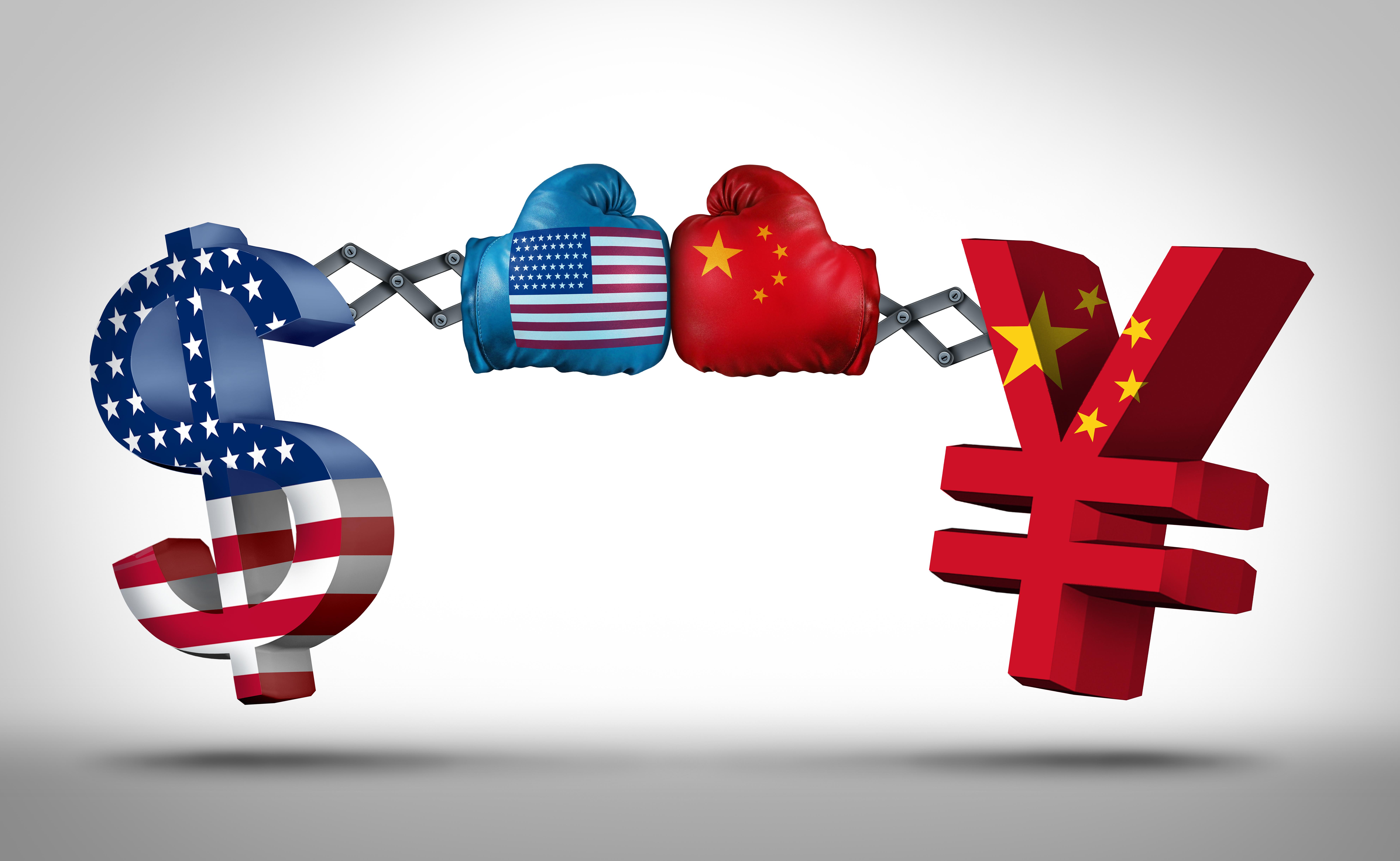Is Trump Hinting at a Currency War?
The currency can be weakened by the central bank or government intervention. If President Trump is reelected, a currency war seems obvious.
Sept. 4 2019, Published 8:53 a.m. ET

On September 3, President Trump tweeted, “Germany, and so many other countries, have negative interest rates, ‘they get paid for loaning money,’ and our Federal Reserve fails to act! Remember, these are also our weak currency competitors!” A weaker currency helps improve a country’s export competitiveness. In 2015, China devalued its currency to boost its export competitiveness. Similarly, the European Union struggled to expand its economy. Germany is the biggest economy in Europe. The country’s GDP growth contracted on a sequential basis in the last quarter. In the future, countries might get into a currency war if fiscal and monetary measures don’t revive the economy.
Why is the dollar rising?
On September 3, the US dollar reached its two-year high. If the Fed reduces interest rates by 25 basis points, it might not be enough to weaken the US dollar considering the current circumstances. A rate cut by at least 50 basis points would calm the rising US dollar. According to CME’s FedWatch tool, for the September 18 meeting, there’s a probability of 92.7% that the Fed will reduce interest rates by 25 basis points. There’s a 7.3% chance that the Fed will reduce interest rates by 50 basis points.
Currently, the US dollar is getting stronger due to political and economic uncertainty across the globe. The unrest in Hong Kong and political uncertainties in Britain due to Brexit help the US dollar rise. With the recession fears, the emerging market is witnessing a huge outflow of foreign investments. On a year-to-date basis, the S&P 500 Index (SPY) and the Nasdaq 100 Index (QQQ) have risen 15.9% and 20.2%. The tech-heavy Nasdaq outperformed the S&P 500. The Technology Select Sector SPDR ETF (XLK) has risen 26.8% and outperformed other sector-specific SPDR ETFs.
Why is President Trump frustrated?
On August 23, President Trump tweeted, “As usual, the Fed did NOTHING! It is incredible that they can ‘speak’ without knowing or asking what I am doing, which will be announced shortly. We have a very strong dollar and a very weak Fed. I will work ‘brilliantly’ with both, and the U.S. will do great.” He also tweeted, “My only question is, who is our bigger enemy, Jay Powell or Chairman Xi?”
In December, Steven Mnuchin tweeted, “(1/2) I have spoken with the President @realDonaldTrump and he said ‘I totally disagree with Fed policy. I think the increasing of interest rates and the shrinking of the Fed portfolio is an absolute terrible thing to do at this time.’” These tweets suggest that President Trump wants the Fed to reduce interest rates by a larger magnitude. He wants the US to join the negative interest rates club if necessary.
Will President Trump start a currency war?
Once the trade deal with China is done, what’s next? The jobs aren’t going to return to the US. In fact, businesses are moving out of China to countries like Vietnam, Taiwan, India, and other Asian nations. The cheap and abundant workforce was one of the important factors that shifted production facilities from the US to China. Cheaper labor or a weaker currency could be the only ways to get jobs back to the US.
If the Fed reduces interest rates at the current pace, in less than two years it might land into ZIRP (zero-interest-rate policy) or even negative interest rates. For the US economy to sustain its GDP expansion rate, the Fed and the US government will be out of ammo. President Trump already gave a fiscal stimulus in terms of the tax cut. So, the chances are high that the US might weaken its currency to spur economic growth. The currency can be weakened by the central bank or government intervention. If President Trump is reelected, a currency war seems obvious.
Beyond the trade war
The shrinking working-age population could be a fundamental source for any possible slowdown in the US. According to the Centers for Disease Control and Prevention in 2018, the birthrate in the US fell to the lowest level in the last 32 years, which is an alarming factor. The fertility rate is also at a historic low. Europe and Japan are already struggling with a shrinking working-age population. The US will join them if the government doesn’t take bold steps like the trade war.
